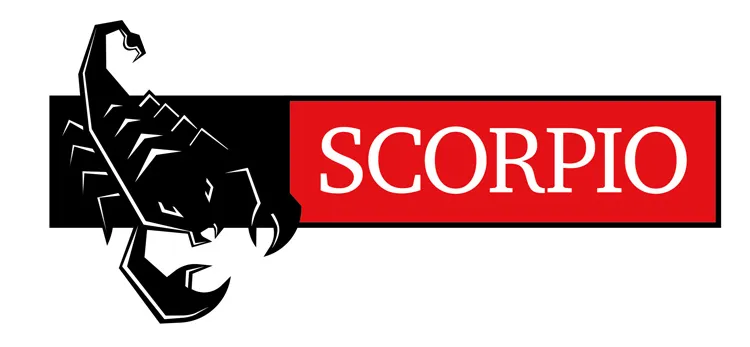SCORPIO
High court battle kicks off to claw back Insure Group Managers’ R1.2bn nest egg

The legal fight to recoup R1.2bn in insurance premiums allegedly fraudulently used to feather financial intermediary Insure Group Managers’ nests is now in court. Shoved into purgatory are auditors Horwath Leveton Boner (now Crowe JHB) and compliance officers Compliance Monitoring Systems.
The case of the missing R1.7-billion in insurance premiums seems to have spilt into the public arena only because Insure Group Managers Ltd’s (IGML’s) buoy, VBS Mutual Bank, sank without warning.
For several consecutive years, IGML’s auditing firm, Horwath Leveton Boner (now Crowe JHB), signed off on IGML’s annual financial statements, offering unqualified audit opinions. Similarly, compliance officers Compliance Monitoring Systems filed regular reports confirming all was well.
VBS’s unexpected implosion in early 2018, however, violently stripped Insure’s veneer of credibility, forcing company chief Charl Cilliers to file for voluntary curatorship soon thereafter.
Curator Pieter Bezuidenhout seemed to have walked into Insure without wearing blinkers.
In chilling contrast, he found Insure had cooked its books for more than a decade in order to shield a scheme in which Insure’s managers, possibly fraudulently, misappropriated R1.7-billion in collected premium funds meant to be paid over to 45 insurers.
Through crafty bean counting, the premium funds were used to pay R160-million in dividends to Cilliers and business partner Diane Burns, reward company directors, pay company expenses, make dodgy intercompany loans and buy illiquid, wonky and ultimately loss-making assets, the curator said.
Financial Crimes Inc: The case against Insure Group Managers
Insure’s directors allowed it to trade recklessly or negligently in a scheme meant to defraud its victims in order to make a secret profit not to be shared with the insurers, the curator detailed in a confidential reportable irregularities report filed with regulator Financial Sector Conduct Authority (FSCA).
The sentinels were caught sleeping. Or worse.
This is the point 11 large insurers are trying to drive home in two sets of court papers filed in September at the High Court in Johannesburg. The aggrieved insurers include Hollard, Santam, Bryte, Guardrisk and Old Mutual (see footnote for complete list).
They are out of pocket to the amount of R1.2-billion in insurance premiums, plus interest, and asked the court to compel IGML and its eight directors to pay back the money.
The directors include Cilliers and Burns, who the curator found were the directing minds of the scheme and who the FSCA has in the meantime debarred for five years because they lack integrity and honesty. Burns previously complained bitterly that she and Cilliers were “singled out” while no other directors were taken to task.
The FSCA may have let that one slip, for now, but the insurers didn’t.
Six additional Insure directors are joined in the court papers. They are non-executive director Gordon Kenneth Cunliffe, CFO Grant Davids, shareholder Ian du Toit, an executive director since 2005, non-executive director Donald Gordon Eriksson, non-executive director Andrew Alexander Maren and Frans Els, executive director and later CFO. Davids and Du Toit now work at QSure – essentially Insure rebranded and managed under new leadership.
Court documents claim that “the IGML scheme was illegal and the defendants, as directors of IGML, formulated and implemented the IGML scheme in reckless disregard of the laws and with the intent to defraud” the insurers.
Insure, however, is insolvent. Its assets bought with premium funds are in the process of being liquidated – some at a loss, some at increased value. The directors probably don’t have the funds. Whether the directors sit on a collective R1.2-billion, is unsure. The insurers say they have little to no hope of recouping it all.
So, the aggrieved insurers filed a second set of papers, including auditors Horwath Leveton Boner and compliance officer Compliance Monitoring Systems.
How Horwath Leveton Boner and Compliance ‘failed’
Horwath Leveton Boner rebranded as Crowe JHB in 2018.
(Ironically, Crowe JHB’s forensic arm, Crowe Forensics SA (Pty) Ltd, conducted the forensic investigation in the VBS Mutual Bank probe where the Insure issue was first highlighted.)
The insurers argue that the auditors and compliance officers had a public duty to blow the whistle on wrongdoing. Their job is a crucial checking mechanism. Without the sentinels, there was no way for the insurers to recognise that a delinquent company misappropriated its funds, traded recklessly and fast headed for disaster.
Insure and its directors were in the business of collecting the public’s insurance premiums. Being a dominant player in the market, hundreds of millions of rands in premium payments flowed into Insure’s accounts every month. The premium funds were meant to be ring-fenced – not to be mistaken for or confused with the business funds – and paid over to the insurers 45 days after collection, the insurers argue.
Simple enough. Or not. Insure, the facts suggest, saw a gap.
The business unlawfully used premium funds to buy illiquid assets that included a mine rehabilitation plant in Springs, a stake in a planned deepwater port in Mozambique and a property portfolio in KwaZulu-Natal. The goal was to make loads more money off these assets, in secret and not to be shared with the insurers. The scheme, the curator found, was probably fraudulent.
It may have worked, though, because the sentinels were sleeping. Or looking the other way. Except, business acumen seems to have reached a low point at Insure. Most of the assets were “hare-brained investments”, as one manager with in-depth knowledge labelled them.
South African insurance industry rocked by Insure Group ‘premiums misappropriation’ scandal
A sterling example is the deepwater port, which hinged on a successful partnership between China, Botswana, Mozambique and Zimbabwe.
Insure’s R105-million investment was “abandoned” when the project “collapsed” in 2016, the curator found.
At this rate, the Insure scheme was doomed to failure. But Cilliers managed to negotiate a credit facility with VBS Mutual Bank to keep it afloat. Now, with the benefit of hindsight, we know that VBS officials, in turn, hoped Insure could buoy the bank, which was, at the time, robbed blind by its managers, politicians and businessmen. VBS’s tide went out first, dragging Insure along with it.
But how can it be, insurers ask, that Horwath Leveton Boner and Compliance Monitoring Systems knew nothing, saw nothing and said nothing?
The auditors and compliance officers had a “legal duty” to the insurers to file reportable irregularity reports with the regulators, qualify their audit opinions on the annual financial statements and ensure that limited assurance reports indicated breaches of statutory rules, the insurers argue.
As a consequence of Horwath Leveton Boner and Compliance Monitoring Systems’ “negligent breaches of its legal duties”, the regulators knew nothing, the insurers suspected nothing, and Insure kept on trading happily.
Until they weren’t. (Not mentioned in the court papers, however, is a burden silently carried by small insurers – some of whom had to close their doors – because of Insure’s alleged fraud and the auditors’ and compliance officers’ blinkers. Others told Scorpio that their losses were a “gut punch” that “put back the business(es) about five years”. They don’t have the money to fight extended legal battles. The tragedy is that these businesses knocked the hardest include some of the small black-owned businesses trying to carve out a foothold in a very dynamic and established market.)
A “reasonable” auditor and compliance officer would have, under these circumstances, reported the numerous reportable irregularities, would not have misstated Insure’s compliance and financial position and would have reported irregularities to the regulators, the insurers say.
Because they didn’t, insurers told the court, and because they are in breach of the legal duty they owe the insurers, Horwath Leveton Boner and Compliance Monitoring Systems must pay up if Insure and its directors cannot.
The eight directors, Horwath Leveton Boner and Compliance Monitoring Systems have filed a notice of intention to defend the summons.
Cilliers’ troubles, however, are not over yet. In our next article, Scorpio will reveal how Cilliers admitted, under oath, that he had lied to his clients.
When you are a financial service provider and a chartered accountant, lying to your clients is a big deal and should have repercussions. DM
Footnote: The insurers involved in litigation with Insure Group Managers Ltd are:
- Hollard Insurance Company Ltd,
- Santam Ltd,
- Bryte Insurance Company Ltd,
- Guardrisk Insurance Company Ltd,
- Old Mutual Insure Ltd,
- New National Assurance Company Ltd and
- Constantia Insurance Company Ltd.
Following companies ceded their claims to two of the first-mentioned insurers:
- Lombard Insurance Company Ltd,
- Auto & General Insurance Company Ltd,
- Hollard Specialist Insurance Company Ltd and
- Mutual & Federal Risk Financing


















 Become an Insider
Become an Insider
Darn Pauli….this was so well written
Once again, like with the Gupta, the auditors are the facilitators, the enablers of fraud. Is it a crime of omission or commission? I think the latter. Auditors should also face prosecution or lose their licence. Always the small businesses suffer – it’s really not fair.
It’s a stretch to accuse the auditors of being the enablers and committing this fraud, “like with the Gupta”. It was clearly the managers and directors committing these acts of malfeasance. Could and should the auditors have done more, probably – but bear in mind that a statutory audit is not a forensic investigation into a company’s affairs, it is merely “reasonable assurance” of the financial position and results.
Bull****. Auditors are paid a pretty penny to do a specific job. When they fail spectacularly, we must just “forgive and forget”? I don’t think so.
Auditing standards are under pressure, the more so as various forms of paying, funding proliferate and our World, including the business World, becomes ever more complex.
It must always be borne in mind that the responsibility for preparing accounts rests with the Board of Directors, particularly the executive directors. But of course it is the responsibility of the non-executive directors both to provide advice to the Board where appropriate – and it is to the conscience of the non-execs what this may constitute – so the quality and integrity of Directors is paramount.
Clearly this has been the primary, and fundamental shortfall in many companies from Steinhof, Tonga-Hulett, VBS and all the SOE.
A good balance between Independence, in the form of the non-execs and the executive component are fundamental as is a working relationship with management.
A good way to think of a well-functioning company is to think of the control as a number 8; the bottom circle is the managing of the company component, executive Directors, the CEO and management, focussing inwards, managing the enterprise, and the top circle is the main Board, including the CEO at the axis of the two circles, and they should have a more helicopter view, taking in both the performance of the executive, as well as scanning the broader, compliance-included, broader view.
So what then is the point of having compulsory and expensive audits every year? Are they untouchable? What exactly is the auditors’ responsibility? None it seems?
One of my bug bears. Every year when I sign off on audit reports I get so angry reading the pages and pages of disclaimers.
Great profession. Companies HAVE to use your services but you accept no responsibility. I wish I could do that with my customers. Supply them a product and when it breaks just walk away?
Utter nonsense!
And they join the lofty ranks of PwC, Deloitte, KPMG, Arthur Andersen and many others. Gate keepers indeed.
The crooks flock together, what a combo – VBS and IGML.